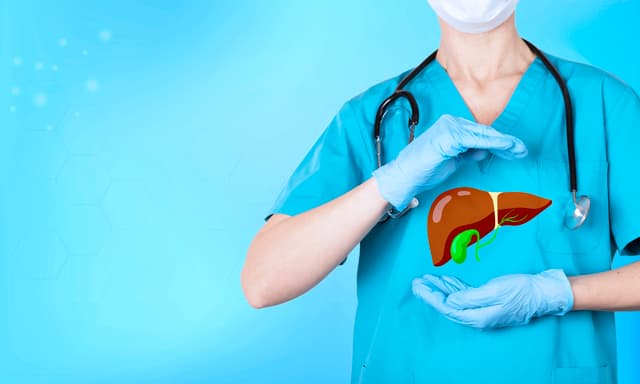Understanding Liver Biopsy: A Comprehensive Guide
Liver health is crucial for overall well-being, and at Tri-State Gastroenterology Associates, we prioritize patient education and awareness. One of the key procedures we perform to assess liver health is the liver biopsy. If you’re experiencing symptoms related to liver issues or abnormal liver tests, understanding what a liver biopsy entails can help you feel more informed and prepared.
What is a Liver Biopsy?
A liver biopsy is a medical procedure where a small needle is inserted into the liver to collect a tissue sample. This sample is then analyzed in a laboratory to diagnose various liver disorders. The liver is a vital organ responsible for numerous functions, including detoxification, protein synthesis, and production of biochemicals necessary for digestion. Conditions such as fatty liver disease, hepatitis, cirrhosis, and liver tumors can significantly impact its function, making regular checks essential.
Why is a Liver Biopsy Necessary?
Liver biopsies are typically performed when doctors need to determine the cause of:
- Persistent abnormal liver blood tests: Elevated liver enzymes can indicate inflammation or damage.
- Unexplained jaundice: Yellowing of the skin may signal liver dysfunction.
- Liver abnormalities detected through imaging: Ultrasounds, CT scans, or MRIs may reveal irregularities that require further investigation.
- Unexplained liver enlargement: If the liver is significantly larger than normal, understanding the cause is essential.
By obtaining a tissue sample, physicians can make informed decisions about diagnosis and treatment.
Preparing for a Liver Biopsy
Preparation for a liver biopsy is crucial for ensuring a smooth procedure and optimal results. Here are some key steps you should follow:
- Consult Your Doctor: Always inform your physician if you are pregnant, have heart or lung conditions, or have any allergies, especially to medications.
- Medication Review: Discuss any medications you are currently taking, especially blood thinners like Coumadin or Plavix. Your doctor may suggest alternatives or adjustments to your medication regimen before the procedure.
- Avoid Certain Medications: For a week prior to the biopsy, refrain from taking aspirin or anti-inflammatory drugs unless specifically directed by your doctor.
- Follow Pre-Procedure Instructions: Your healthcare provider will give you specific instructions tailored to your needs, which may include fasting before the procedure.
What to Expect on the Day of the Liver Biopsy
On the day of the procedure, you will undergo a series of steps to ensure your safety and comfort:
- Initial Tests: Laboratory tests, including blood counts and clotting studies, will be performed to assess your readiness for the biopsy.
- Procedure Explanation: Your doctor will explain the biopsy process in detail, addressing any questions or concerns you may have.
- Positioning: You’ll lie on your back, usually with your right arm placed under your head to help expose your abdomen.
- Ultrasound Guidance: An ultrasound may be used to locate the liver and guide the needle to the correct area.
- Local Anesthesia: The doctor will clean and numb the area where the biopsy will occur using a local anesthetic.
- Needle Insertion: A thin needle is then inserted through the abdominal wall to obtain a small sample of liver tissue. The actual procedure typically lasts about five minutes.
- Recovery: After the biopsy, you will be monitored in a recovery room for up to four hours. Minor discomfort or pain may occur, but pain medications can be provided if necessary.
After the Liver Biopsy
Post-procedure care is crucial for a smooth recovery:
- Rest: Avoid strenuous physical activity for at least 24 hours.
- Medication Restrictions: Do not take aspirin or anti-inflammatory medications for one week post-biopsy. Acetaminophen can be taken if needed.
- Driving: You should not drive or operate heavy machinery for at least eight hours following the procedure.
Your doctor will discuss the biopsy results with you several days after the procedure, providing insights into your liver health and any necessary treatment options.
The Importance of Liver Health
Understanding liver health is vital given the organ’s significant role in overall bodily functions. Regular check-ups and being proactive about symptoms can help catch potential issues early. The liver is resilient but requires care and attention, especially if you have risk factors such as obesity, diabetes, or a history of alcohol use.
At Tri-State Gastroenterology Associates, our dedicated team of physicians, including board-certified specialists, is committed to providing compassionate and comprehensive care. We understand that undergoing a liver biopsy can be daunting, but our staff is here to support you every step of the way.
Conclusion
A liver biopsy is a valuable diagnostic tool that can provide critical information about your liver health. By understanding the procedure, preparing adequately, and following post-procedure guidelines, you can navigate this important health assessment with confidence. If you have concerns about your liver health or need to discuss the possibility of a liver biopsy, don’t hesitate to reach out to us at Tri-State Gastroenterology Associates. Together, we can take the necessary steps to ensure your gastrointestinal health and overall well-being.
For more information or to schedule an appointment, please contact us at (859) 341-3575 or visit our website. Your health is our priority, and we are here to help you every step of the way.
